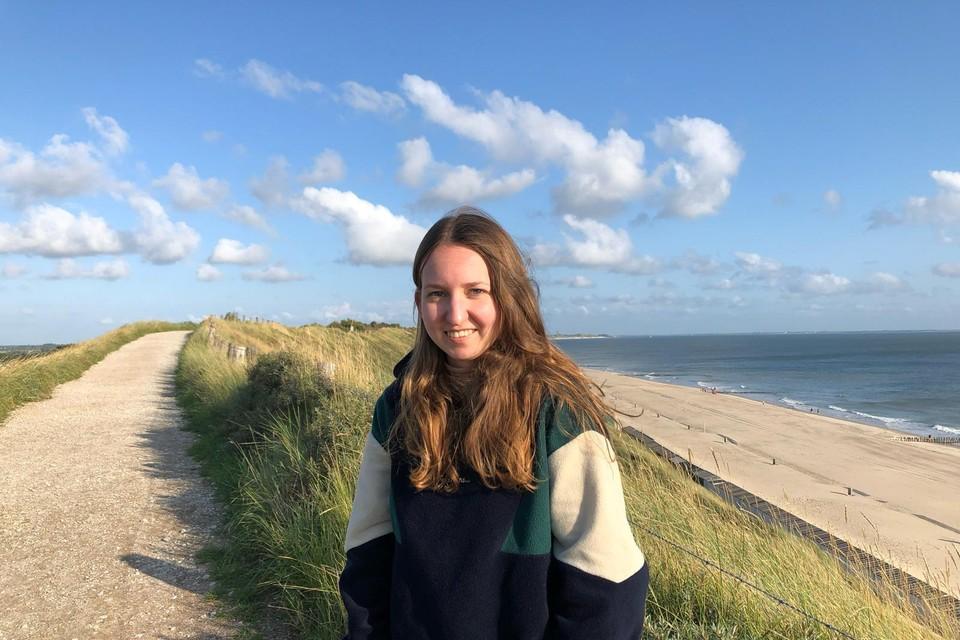No linear journey of buying, wearing and throwing away, but a circular process where clothes are reusable every time. CiRCEE, a sustainable fashion platform from Maastricht, hopes to turn the clothing industry on its head by selling sustainable brands, renting clothes, repairing ánd recycling all in one place. "We are not looking at the number of products sold, but the number of customers reached."

A black bikini in the sands of Zoutelande got her thinking. Lily Pepper saw the discarded garment on a sunny day at the beach. She decided to research the impact of fashion on the environment. That the fashion industry caused problems related to cheap labor in mostly Asian countries, she knew. But that the fashion industry is responsible for ten percent of global CO2 emissions - only the oil industry has an even higher percentage - and produces 92 million in textile waste annually, she found downright shocking.
Lily asked herself: how can this be? There are plenty of sustainable brands and innovative techniques to give clothes a new life, so why isn't the fashion industry circular? The opportunities are there. They're just not always accessible, Lily noticed. Certainly not for consumers.
"Research shows that people buy few sustainable clothes and hardly ever repair or recycle their clothes because it's often inconvenient for them," she explained. "It takes time and money, while buying, repairing and donating also require you to be in different places each time. It would be much more convenient to have all these options in one place."
Waste is a resource
.Let that be exactly the idea behind CiRCEE, a sustainable fashion platform named after the Greek goddess of transformation. The company operates online from Maastricht, the place where Lily completed her bachelor's degree in Liberal Arts and Sciences at University College Maastricht summa cum laude with a focus on sustainable business & law. From an early age, the German native has been fascinated by circular economy, replacing a linear process of buying, using and throwing something away with a circular process in which materials can be reused again and again. After all, according to Lily, waste is no longer waste, but a resource.
She doesn't see herself so much as an activist, but active she certainly is. Ambitious, too. "A lot of people know that the meat industry and frequent air travel are bad for the environment, but no one thinks about the role of fashion. Partly because the impact is less visible, but also because fashion is a luxury product. It gives satisfaction and it is a means to express your true identity, so people are willing to dwell less on the negative impacts. Fast fashion and cheap clothing is just easier for consumers, but it is bad for the wallet as well as the environment due to its short lifespan." Lily draws the parallel with smoking: something that is bad for you, but where the right action, namely quitting smoking, is not exactly easy. "It takes effort, motivation and awareness. Our challenge is to make it easy to make the right decision when it comes to fashion."
Connect
.The core mission of CiRCEE is to make circular fashion accessible to the public. People can buy, rent sustainable brands, get garments repaired and donated, all under one roof. "Re-tail, re-pair, re-sell, re-cycle and re-educate, with the option to rent as well," Lily says. "We remedy the disconnect between clothing stores, tailors and thrift stores and deliver orders as much as possible in a sustainable manner by bicycle."
CiRCEE operates online for now, but in the near future physical pop-ups will appear at events in Maastricht and possibly elsewhere in the province. In the future, she also wants to establish a hub in Rotterdam, for example. How will she determine whether CiRCEE will be a success? Not by looking at the number of products sold, but the number of customers reached. "How many people have we convinced to switch from fast fashion to slow fashion? After all, that is our core mission. CiRCEE and its methodology is also an ideal case study for other industries facing a similar challenge, namely how to get consumers to switch to a sustainable alternative. The techniques and opportunities are there in those industries as well. It's just a matter of connecting the dots. If we do that, hopefully we will realize a future where there are no more stray bikinis on the beach."
This article was written by The Limburger